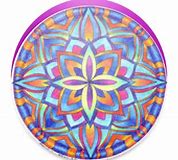
Self-care is a broad term that encompasses just about anything we can do to be good to ourselves. In a nutshell, it’s about being as kind to ourselves as we would hopefully be to our families and others. Some days this can be easier said than done.
However, when a new concern rears its ugly head with ourselves, a friend or a family member, and when we’re able to get beyond denial and move forward to the next best step–how do we know what that step should be?
In our national quest to be symptom free, we make millions of unnecessary visits to doctors–as many as 70% of all visits for new problems according to many sources. And often these visits are costly due to co-payments, prescription(s), time involved including missed work, and potential exposure to unhealthy scubumba–I know, real technical term, right?
Thankfully, we do have other options: call a triage nurse, google the concern, ask a friend or family member; or how about a trusted reference book.
The military is no exception when it comes to seeking medical care–in fact often our Emergency Rooms were misused by active duty, their families and civilians. Since this was a concern across all the military medical facilities, the Air Force opted to be more proactive through their Health Promotion departments in the mid 90’s.
While newly assigned to Kadena Air Base in Okinawa, Japan as Chief Nurse Executive, all we newcomers were given two self-care resources during inprocessessing regardless of background or education–Taking Care of Yourself and Taking Care of Your Child, by James Fries, MD and Donald Vickery, MD .
Admittedly, I referred to these 6th edition references several times as needed and they proved very helpful and easy to use. These books offer what to treat at home, when to see a doctor or seek emergency care–and there are 10th edition copies now available.
Once a condition (like sore throat or headache) is found in the back index and by going to its corresponding page(s) you’ll learn your best next step. You will also discover that these books provide over 175 algorithms or easy-to-use decision charts to guide you on your next best move.
One might think that many medical concerns/issues may fall in the “common sense” arena–however, due to the often poor objectivity when it’s involving ourselves or a family member, that may go out the window. (Realistically, if “common sense” were more common there would be more of it–right?)
Here are some qualifications addressed in the beginning of these books:
If under the care of a medical provider and receive advice contrary to these books, follow the provider’s advice (then individual characteristics of the problem can be taken into account). We always have the option of a second opinion as needed.
If there is an allergy or a suspected allergy to a recommended medication, check with your provider, at least by phone, before following the advice in these books.
Read medication label directions carefully–instructions vary from year to year–therefore, follow the most recent.
If your problem continues to concern you beyond a reasonable period, you should see a medical provider (a reasonable period is suggested for most problems).
With the Holidays approaching these books could make a wonderful gift of self care for someone special in your life. For ease, I’ve created a page for “Support Material” on my blog site (www.holisticseekers.com) for both 10th edition books.
“Take charge of your health–if you don’t, who will? There is no better guide to the path and no more honest assessment of medical ills than you will find in this book. It not only covers maintaining your health but also prepares you to managing new problems that come along. Take Care of Yourself leaves you well prepared to “take charge!” – C. Everett Koop, MD, Former Surgeon General, U.S.
Here’s to our self-care wellness journey, Warriors! And let’s be gentle with ourselves along the way!
